Expanded Canon Is Changing How You See The Rise Of The Empire In An Interesting Way
Do You Agree?
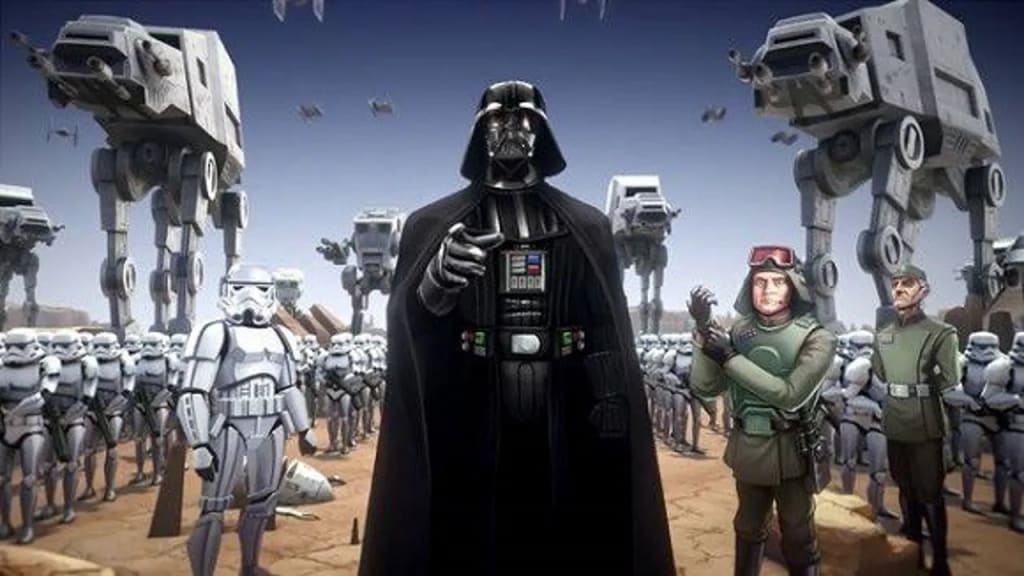
When the first Star Wars film, A New Hope, was released back in 1977, it was pretty obvious from the beginning who were the bad guys and who were the good guys, right? Well, thanks to the longevity of Star Wars and the thousands of related media released since the original, we start to get a deeper look at each side's motivations for their actions. Thanks to the likes of the prequel trilogy, the newer TV shows, and other media, we start to see that it's not so black and white as we once thought.
In our first look at the galaxy far, far away, the Empire is already in control, with the Rebellion fighting against them, and it all seems to be happening under the watchful eye of the ultimate evil, Darth Vader. We find out, from an older Kenobi, that it wasn't always this way. Prior to the rise of the Empire and "before the dark times," there was peace throughout the galaxy, guarded by the now mythical Jedi Knights. This helps enforce the view of the Empire being completely evil.
Straight from the off, the Empire is shown to be absolutely ruthless in their quest for complete domination. In the first film alone, Vader and his stormtroopers attack a seemingly random ship and kill a great deal of its crew with little to no mercy. Vader would then go on to torture Princess Leia aboard their enormous space weapon called the Death Star, which would then be used to blow up her home planet Alderaan, wiping out billions of lives in mere seconds - clearly the bad guys here.
As the original trilogy progresses, we see more of Vader's staff "training" techniques, which basically involves your death if you make a mistake. We also learn that he is not the big bad after all; a character known as the Emperor is. Whilst we meet him via a hologram communication in The Empire Strikes Back, we wouldn't properly meet him in person until the last film in the trilogy, Return of the Jedi. During the events of the final film, it's clear that the Emperor is the ultimate big bad of this universe, ruling with an iron fist and ready to wipe out anyone standing in his way. Back in the day, watching him assault Luke with a barrage of Force lightning was terrifying.
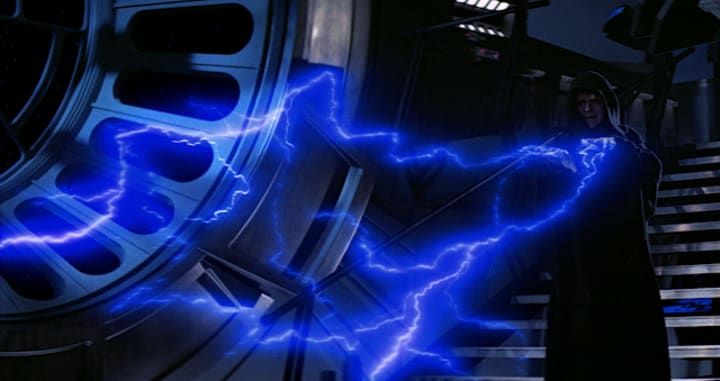
Years after Return of the Jedi hit screens, a new trilogy would begin, starting in 1999 with The Phantom Menace, set 32 years prior to the events of A New Hope. We are properly introduced to the Jedi Order, portrayed as monk-like characters who exist to maintain peace throughout the galaxy whilst working closely with the Galactic Senate - a government body led by the Supreme Chancellor. Each system or planet within the Republic has its own representative who is able to bring issues before the Senate or make requests for aid and support.
Whilst the prequel trilogy did receive a bit of a backlash for focusing on politics, it did help us understand how the galaxy worked prior to the rise of the Empire and the difficulties faced in keeping the peace. It's during this trilogy that we also see the return of the Sith, who are the mortal enemies of the Jedi, and learn the backstory of one of the saga's most tragic characters - Darth Vader. We see him grow from an innocent young boy to the evil Sith Lord, and fans couldn't help but feel sorry for this evil character.
It's also during this trilogy that we are introduced to the Dark Lord of the Sith, Darth Sidious. A character operating in the shadows who secretly manipulates events to suit his own goal. We also meet Senator (and later Supreme Chancellor) Palpatine. A seemingly normal man just trying to protect his planet. Flash forward two movies, it turns out Palpatine and Sidious are one and the same. During the events of Revenge of the Sith, he advises the clone troopers to "Execute Order 66," resulting in the mass purge and basic extinction of the Jedi. He would also go on to inform the Senate that the Republic would be reorganized into the first Galactic Empire, declaring himself Emperor.
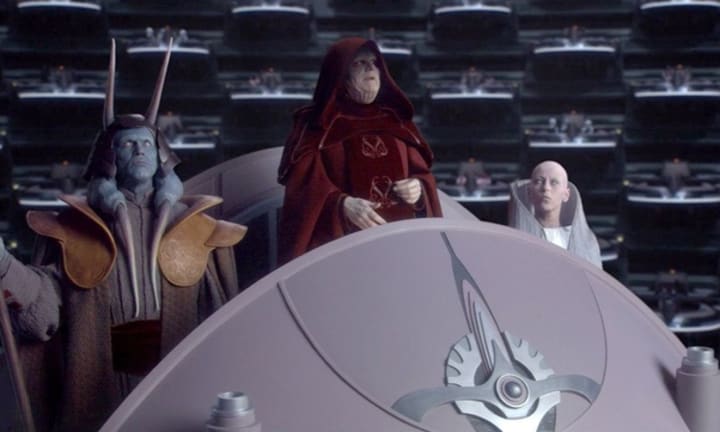
Despite all the bad Palpatine did, one of the more interesting points which have arisen from the prequels as well as from The Clone Wars TV show is the fact the Republic wasn't exactly all it was made out to be and not so "good" as one may think. Throughout the original trilogy, the Rebellion are shown to be the polar opposite to the Empire, looking to reverse what happened and go back to how it used to be. However, from what we have seen now, the Republic had huge problems. It was extremely corrupt and basically laid out the red carpet for Palpatine to come in and do what he did.
The expanded media of the franchise has completely turned the original idea of an evil Empire ceasing control of a peaceful galaxy and turning it upside down, to actually sometimes suggesting it is the better of the two. The Clone Wars highlighted this extensively throughout its run. Episodes showed us clone troopers and Jedi were not allowed to interfere with certain planets based on old treaties, such as when Mandalore required help, and at times even forced planets to be used as bases or outposts for Republic forces, even when they made it clear that they wanted no part of the war.
Fast forward to 2016 and the release of Rogue One, set in the weeks and days just before the events of A New Hope, and we see the Rebellion is willing to assign assassination attempts and even have members willing to sacrifice others to save themselves. This hardly screams "we are the good guys," doesn't it?
Even in the The Last Jedi, we are given information suggesting that the New Republic is just as bad, if not worse, than the one which preceded it. Codebreaker DJ claims both they and the First Order purchase their weapons from the same sources, highlighting its own hypocrisy.
Now we have The Bad Batch, the newest TV show currently streaming on Disney+, which follows the adventures of Clone Force 99, a genetically enhanced group of clones. The events of this show start during Episode III and continue after the end of that film, focusing specifically on the rise of the Empire.
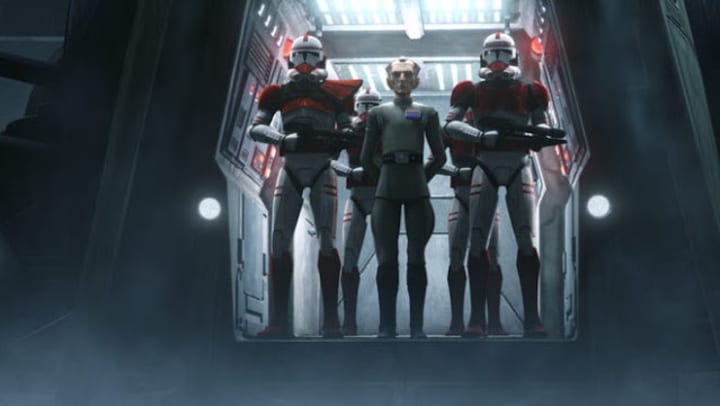
Four episodes in, we are starting to see how the Empire actually begins life and what it means for all of its citizens. Yes, there are elements of the "evil" side of the Empire, like people having to have assigned codes for travel. However, we also see that not everyone is feeling it bad. Seeds have been sown with regards to us potentially seeing clones being replaced by stormtroopers, with one new conscript stating, "with the Empire I get paid, I get fed, I have a roof over my head... that's more than the Republic ever did for me." While it's only one character, it's completely believable not everyone will see the Empire as a bad thing and many may actually benefit from the change. Palpatine maintains order by having people fear him or Vader, so less people are likely to act out when they know what's potentially waiting for them.
Seeing these new elements unfold throughout the expanded media is really a breath of fresh air and a smart idea when you think about it. Gone is the basic idea of Republic/Rebels good, Empire bad. Instead, we see, much like real life, it's not all black and white. Sometimes there are grey areas. This all gives fans something new to ponder over and open up brand new discussion, after all...
Good is a point of view...
What do you think? Have we got the good and bad guys mixed up? Is one better than the other or are they both just as bad as each other?
Until next time!
Written By Jordan McGlinchey
Source(s): Screen Rant
Syndicated From Culture Slate


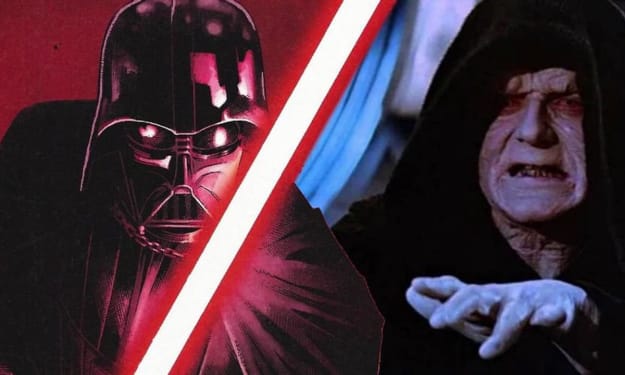



Comments
There are no comments for this story
Be the first to respond and start the conversation.